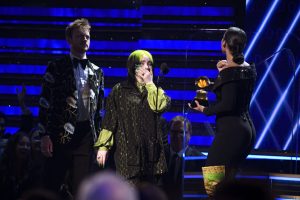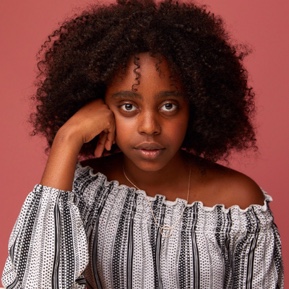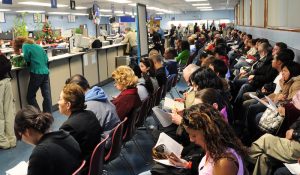ACE Spectrum
ACE Spectrum
Ace Spectrum is about you — the ACE Learning Centers.
It’s a quick sharing of ideas, inspiration, opinions and best practices among our continuing education organizations.
Please join the conversation.
How Oakland International High School Rethought Math to Meet Student Challenges and Help Find a Path to Success
By David Hansen, Vice Principal, Oakland International High School, and former head of the Math Department

OIHS students study math concepts. Left to right: Emerson Lima Benitez, Glendy Perez Lopez, Juan Ixcoy Juarez and Jarbin Perez Chilel.
In 2015, as the governor was looking to end the use of the California High School Exit Exam (CAHSEE), the math department at Oakland International High School (OIHS) debated which metrics we should then use to gauge a successful program. Given the unique needs of our student population – all of our students are newcomers, recent arrivals in the US – we thought it made most sense to look at college placement and work backwards.
That year, we had 80 seniors. Most of them would be going into community college, a few into CSU’s and maybe one or two into UC’s. Of those 80 students only three were placed in college level math class upon high school graduation. The rest were placed in remediation. Over half in fact were placed in Arithmetic, a class that was two-years below credit bearing math classes.
As we looked more at data and talked to more alumni, we found that math was most likely to be the thing that prevented our students from succeeding in college – even more than English despite the fact they were all still learning English. By being placed in remediation in college, they were likely to take years to move into credit bearing classes. Some students would never move into credit bearing classes and would be stuck in remediation in perpetuity.
As a department we decided we wanted to tackle this issue and affect both students’ success in college math and their placement upon leaving high school. We decided to take a two-pronged approach to this.
The first thrust would be to add dual-enrollment math classes after school. These are college classes that also give high school credit. Students would take the classes after-school and receive homework support during the day.
The second part was to work with students, to help them understand what math classes they could and should enroll in once they left high school.
This year at OIHS, we have approximately 85 student seniors. Of those 85, over 90% of them will be placed directly into college level math and almost 50% will have already completed at least one semester of college math classes. This dramatic shift has been made possible only by the hard work of the math department and the partnership work with Laney College.
It’s vital to rethink our educational systems on the structural level, using data to determine the gaps and pain points for students, then create alternative pathways to support them through.
The ACE Spectrum Blog will be sharing stories of those who have been making it happen in ACE Learning Centers. Check out their superpowers and be inspired by our local teens and teachers.
From Davos 2020 to the Grammys, The Power of Teens and This New Generation is Inspiring
By Martha Sessums, President, ACE

Finneas O’Connell and Billie Eilish accept the Record Of The Year award for “Bad Guy” onstage during the 62nd Annual Grammy Awards. (Photo by Kevork Djansezian/Getty Images)
It was a big night for pop music’s new generation of innovators last Sunday at the 62nd annual Grammy Awards. Billie Eilish, age 18, took five of the top wins including Best New Artist, Record of the Year for “Bad Guy” and Album of the Year. Her 22-year old brother, Finneas, who co-wrote, produced and engineered the album in their Los Angeles home no less, won six honors for his musical production.
Lizzo won three Grammys from her eight nominations, including Best Pop Solo Performance. Age 31 now, she was 26 when Time Magazine named her a music artist to watch.
Lil Nas X of “Old Town Road” fame is 26 and a self-taught artist. He won two Grammy awards for Best Music Video and Best Duo/Group Performance. His Grammy performance of “Old Time Road” included 13-year old Mason Ramsey who gained his popularity by yodeling at a Wal Mart.
Tyler, the Creator, age 28, won Best Rap Album for “Igor”, and the performance of Tylor in his white, bowl-cut wig where he performed several hip-hop and electro hits has been tagged as one of the Grammy’s best performances.
And 27-year old Rosalía won Best Latin Rock, Urban or Alternative Album for “El Mal Querer.” She was the first Spanish female artist to perform at the Grammys.
These artists are pretty inspirational for any teen who has dreams of success in their life. Big or small, everyone needs inspiration.
Then there were the teens at the recent 2020 Davos World Economic Forum. Greta Thunberg may be given the headlines, but there are a team of teens who are also making a difference in the world. Their spirit and drive are impressive.
• Autumn Peltier, age 15, has been a water warrior since age 8. She represents 40 First Nations in Ontario, many of whom lack clean drinking water and speaks internationally about water rights.
• Ayakha Melithafa, 17-years old, is from Cape Town, South Africa. She mobilizes support for low-carbon development and a just energy transition in her country.
• Cruz Erdmann, age 14, works to save oceans by photographing them. He was named Young Wildlife Photographer of the Year by London’s Natural History Museum.
• Fionn Ferreira, who is 18, invented a new method of extracting microplastics from water using ferrofluid, a liquid developed by NASA. Ferreira won the 2019 Google Science Fair for his methodology to remove microplastics from water.
• Melati Wijsen, age 19, founded “Bye Bye Plastic Bags” with her younger sister to organize petitions, awareness-raising campaigns and massive beach clean-ups. Wijsen and her sister were part of TIME Magazine’s Most Influential Teens and CNN’s Young Wonders in 2018.
• Mohamad Al Jounde, 18-years old and a refugee from Lebanon, was 12 when he built a school in a refugee camp where 200 children now access their right to an education. Al Jounde was awarded the International Children’s Peace Prize in 2017 and MTV’s Generation Change Award in 2018.
• Naomi Wadler, all of 13-years, has a mission is to empower African American girls. Through her activism, she inspires people to join her efforts to remember school shootings and the many African American girls lost to gun violence.
• Natasha Mwansa, age 18, advocates for the health and well-being of young people, particularly against child marriage. She was selected to be part of the African Union Commission’s Youth Advisory Board and became the youngest recipient of the World Health Organization’s Global Health Leaders Award.
• Salvador Gómez-Colón, 17-years old, created a campaign to distribute solar-powered lamps, hand-powered washing machines and other supplies to more than 3,100 families on Puerto Rico devastated by Hurricane Maria. He was named one of TIME Magazine’s 30 Most Influential Teens of 2017 and received the President’s Environmental Youth Award from the United States Environmental Protection Agency and the Diana Award for social humanitarian work in 2019.
• Then there’s Greta Thunberg who is now 17 but started her activism for climate change when she was eight. From school strike in Sweden to Time Magazine’s Person of the Year for 2019, she has taken a leadership position beyond any adult to influence climate change habits of the world.
It’s a star-studded list of teens and those a little older who have made an impact for something they believe in and love. Most were not part of a privileged class. They were motivated by their desire to be their best and do their best. Desire, talent, luck and circumstances all played a part, but mostly they believed in themselves and their mission. And they are making it happen. “Duh,” as Billie Eilish would say.
The ACE Spectrum Blog will be sharing stories of those who have been making it happen in ACE Learning Centers. Stay tuned to see their power and be inspired by our local teens and teachers.
Lessons from KALW Audio Academy: Audio Storytelling and Good Reporting Enhance Empathy and Highlight Stories That Need Telling
By Ben Trefny, News Director, KALW, News Supported Public Radio, and Joshua Sirotiak, Audio Academy ‘20
The first Audio Academy short features are rolling out, and I’m excited to share the first two with you. Both came from queries from KALW listeners as part of our Hey Area project, where our audience asks questions and our reporters find the answers.
First up, Victor Tence made a story entitled “Can Homeless People Get The REAL ID?” You can listen to the answer by clicking here.
Then, Sona Avakian answered this one: “Is There Such A Thing as Earthquake Weather?” Satisfy your curiosity by clicking here.
Through the end of February, we plan to air these 3 minute and 30 second stories from Audio Academy fellows every Thursday. One of them will come from Joshua Sirotiak, who is our guest contributor, today. I have to admit that what he had to say really filled up my heart. Check it out:
“Find a job that you love and you’ll never work a day in your life.”
“A person’s work need not define them.”
These two ideas, possibly in conflict with each-other, kick around in my head a lot.
As the child of a single mother who constantly struggled to keep our household afloat, from a young age I took great pride in my ability to take care of myself materially. Since my early teen years, I’ve been working full-time hours at jobs that, to me, didn’t feel meaningful beyond their ability to meet my material needs and wants. “Line cook” … “contractor’s apprentice” … “grocery store manager” … “bouncer” … “bar back” … These are all hats that I’ve worn, identities that to some extent I know. Through all of them I’ve held on to the identity of “musician” to keep myself sane, to feel like I was doing more than just getting by. (Since those same early teen years, I’ve been playing brass instruments, primarily tuba. The work that I’ve put into music has led me to life experiences that others might envy, but which probably looked glitzier from the outside than they actually felt to be lived through.) As long as I’ve had a show to prepare for it felt like I was putting in work on something that was larger than myself. But I didn’t have the tools (or confidence) to pursue work that felt more meaningful to me personally.
I joined KALW’s Audio Academy because I want to find work that does more than provide a paycheck. I want the work that I do day-to-day to serve society at large, and my community in particular. I also want that work to be intellectually stimulating and creatively satisfying. It’s a tall order, but somehow the people that the Audio Academy has surrounded me with keep making it seem not only possible but almost a foregone conclusion that what I’m looking for is out there. More than that, they keep convincing me that what I want to achieve is well within my reach.
It’s hard to overstate the amount of support that I feel from both my peers and mentors within the Audio Academy. Through their support (and my own work), I’ve managed to report and produce a short feature-length assignment, and I’m now moving on to pitching my own story ideas. Every other week I start my work day by scanning the news and walking members of our newsroom through five stories that I feel are worthy of attention and coverage on KALW’s air. (This is our daily digest call.) The weeks that the digest is not my responsibility, I work on a short script for KALW’s afternoon newscast and then voice those words on air. The confidence boost that I’ve gotten from hearing my own words, and even my own voice, on air talking about the news of the day is immense.
More than once in these last few months Audio Academy fellows and our mentors have spoken about the capacity of audio storytelling to enhance empathy and the capacity of good reporting to highlight stories that need telling. I believe that these twin capacities are things that our world needs now more than ever, and through my time at the Audio Academy I feel that I’m increasingly prepared to make enhancing those capacities my day-to-day work.
Earlier today I decided to finally cut back to part-time at the job that has been meeting my material needs, and I thank the Audio Academy for giving me the confidence to throw myself full time into pursuing my dreams.




